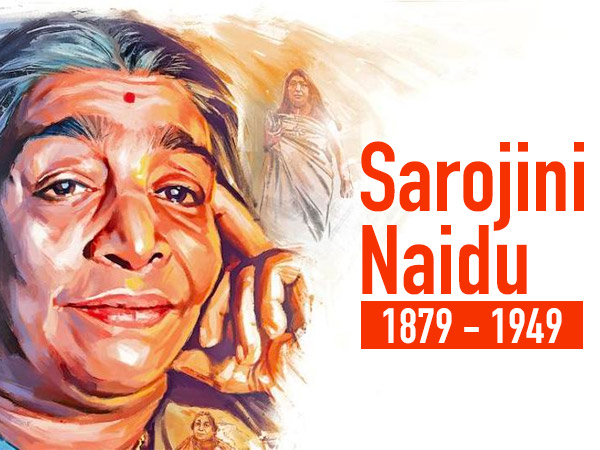Sarojini Naidu, a name echoing with the resonance of poetry and the fire of freedom, left an indelible mark on Indian history. Her life, a tapestry woven with vibrant threads of activism, literary genius, and political leadership, continues to inspire generations. Let’s embark on a journey through the remarkable life of the Nightingale of India:
Sarojini Naidu Biography:
Born on February 13, 1879, in Hyderabad, Sarojini Naidu was the eldest daughter of Aghorenath Chattopadhyay, a scholar and educator, and Varada Sundari Devi, a poet. Immersed in a stimulating intellectual environment, young Sarojini displayed exceptional academic prowess and a love for language.
| autobiography of dr sarvepalli radhakrishnan | autobiography of o henry |
Sarojini Naidu Nationality & Age:
Sarojini lived and breathed India. Throughout her life, she championed the cause of Indian independence and remained deeply connected to her cultural roots. Sadly, she passed away on March 2, 1949, at the age of 70, leaving behind a legacy that continues to resonate.
Sarojini Naidu Education and Schooling:
Gifted with a sharp intellect, Sarojini devoured knowledge. She secured admission to the University of Madras at the tender age of 12, later pursuing higher studies at King’s College London and Girton College, Cambridge. This exposure to diverse cultures and educational systems broadened her perspective and honed her skills.
Sarojini Naidu Relationship and Personal Life:
After returning from England, Sarojini married Govindarajulu Naidu, a doctor, in 1898. Despite the societal expectations of the time, she continued to pursue her passions for writing and activism. Together, they raised four children, instilling in them the values of service and social justice.
Sarojini Naidu Career Beginnings:
Sarojini’s literary talent bloomed early. Her first collection of poems, “The Golden Threshold,” published in 1905, garnered critical acclaim for its vivid imagery and emotional depth. Soon, she began wielding her pen as a tool for social commentary, addressing issues like child marriage, women’s rights, and the struggle for independence.
Sarojini Naidu Career and Contributions:
Beyond her literary prowess, Sarojini emerged as a prominent figure in India’s freedom movement. She actively participated in the Indian National Congress, becoming its first female president in 1925. Her fiery speeches, infused with poetic eloquence, galvanized the masses and earned her the title of “Nightingale of India.”
| autobiography of thomas alva edison | biography of ariana grande |
Sarojini Naidu Achievements and Awards:
Sarojini’s contributions were recognized both nationally and internationally. She received the Kaiser-i-Hind Gold Medal from the British Raj in 1917, though she later returned it in protest against the Jallianwala Bagh massacre. In 1947, she became the first woman Governor of the United Provinces (Uttar Pradesh).
Sarojini Naidu Conclusion and Legacy:
Sarojini Naidu’s life transcends the pages of history books. She was a multifaceted gem – a poet who stirred emotions, a freedom fighter who ignited passion, and a leader who empowered millions. Her legacy isn’t just confined to her literary works or political achievements; it lives on in the spirit of resilience and activism that she embodied. Sarojini Naidu, the Nightingale of India, continues to inspire generations to fight for justice, equality, and freedom, reminding us that the power of words and conviction can truly move mountains.
| biography of emma watson | biography of florence nightingale |



